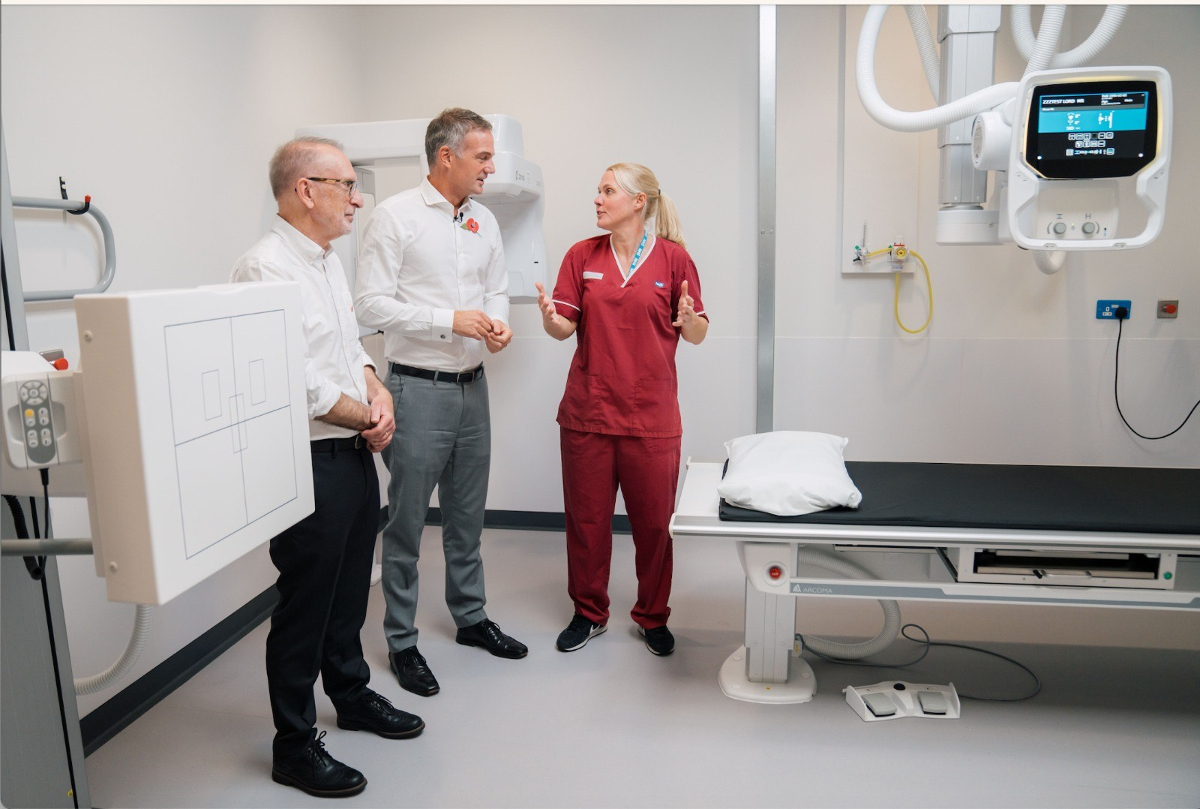AI companies are racing to rescue the NHS
An official review by Lord Darzi revealed recently that the NHS is in “critical condition” following years of underfunding. The review found that the NHS is battling soaring demand, poor productivity, financial pressures and low staff morale. “It’s not just the state of our National Health Service in crisis – it’s also the state of [...]


An official review by Lord Darzi revealed recently that the NHS is in “critical condition” following years of underfunding.
The review found that the NHS is battling soaring demand, poor productivity, financial pressures and low staff morale.
“It’s not just the state of our National Health Service in crisis – it’s also the state of our national health,” Prime Minister Keir Starmer said in response.
Technology will be at the forefront of any recovery programme, with AI playing a key role.
Healthtech is one of the fastest-growing markets in the UK’s public sector, having swollen by over 50 per cent in the last four years, according to public sector data company Tussell.
Many businesses are looking to use AI to tackle the NHS’s chronic issues, especially targeting patient care and long waiting lists.
Every time somebody misses a hospital appointment, it costs £120. So it’s a £1.6bn a year problem.
One such company is Behold AI, which has developed technology to analyse chest X-rays, helping it spot signs of lung cancer in seven seconds, compared to the seven days it might take a radiologist.
The company says its AI technology has the potential to detect 22,000 more lung cancer cases annually and reduce radiologists’ workloads by up to 25 per cent.
Simon Rasalingham, chief executive of Behold AI, said his company’s technology makes a roughly 30 per cent cost saving on NHS budgets.
“It always saves money, I think that’s one of the key things,” he told City A.M.. “The NHS is struggling with funding and I don’t think there’s a golden bullet in terms of extra funding. So saving money is crucial.”
Drdoctor is another company trying to improve the efficiency of the NHS.
Its app partners with NHS hospitals and clinics, allowing patients to book appointments via text or online. It says it can help cut non-attendance rates from 11 per cent to 3.5 per cent.

“Every time somebody misses a hospital appointment, it costs £120. So it’s a £1.6bn a year problem,” founder and chief executive Tom Whicher told City A.M..
He added that Drdoctor’s system can deliver a ten-to-fifteen-fold return on investment for NHS clients by solving immediate problems like waiting lists and back-office productivity.
The firm, which employs 150 people and is looking to expand into Europe and the US, has won contracts across multiple regions in the UK.
Integrating AI into the NHS
However, both Whicher and Rasalingham say that integrating AI into the NHS is the biggest hurdle, mainly due to legacy systems and administrative headaches.
“Legacy systems are absolutely a challenge,” said Whicher, “Interoperability is probably the single biggest thing that holds back innovation in health globally, not just in the NHS.”
Rasalingham agreed, saying that Behold AI’s technology is relatively simple to implement from a technical standpoint, and has been rolled out across 12 per cent of the NHS so far.
But bureaucratic processes, including clinical and information governance, are slowing the pace of its rollout. If repeated tasks were eliminated, penetration could hit 100 per cent within a year, he said.
Even if this was sped up, it still raises public concerns about data privacy, trust, and regulation, especially when it comes to sensitive health care data in the realm of AI.
To address this, Behold AI has registered with the Care Quality Commission, which regulates all health and social care services in England—the first AI provider to do so.
“Our view is to use the existing frameworks that you have, such as the Care Quality Commission, but then beef them up and make them AI-ready,” Rasalingham said.
Under human audit, his product has processed over 100,000 chest x-rays without error and claims to be more accurate than a human radiologist, but this certification gives patients an extra layer of trust.
Whicher said it is a good thing that the health sector is already heavily regulated because it ensures data is shared thoughtfully and cost-effectively.
“It’s an incredible environment to innovate in versus those that are more poorly regulated, and the data is really being used in all sorts of ways that people might not like,” he explained.
Is change coming?
Following the Darzi review, both companies remain hopeful that the NHS is on the cusp of change.
Whicher said things have gotten “much easier” over the last ten years as data has become more accessible and the NHS has started to buy more as a group.
For example, Drdoctor won the contract to deliver patient engagement across all the hospitals in North East and North West London earlier this year.
Whicher said he is “really supportive” of the government’s plan to spend more on running NHS clinics to cut down waiting list times and he believes the NHS could see a big change over the next two years, if the government is bold and invests the right amount of money in a savvy way.
“However, I believe that we can deliver the same result for a quarter of the cost by changing the models and embracing technology,” he added, “So I’d like to see a percentage of that money spent on shifting the way that we think, rather than just doing more work.”
Rasalingham similarly urged the government to take action after the Darzi report revealed that the UK has considerably higher cancer mortality rates than other countries.
“There is a significant opportunity to start streamlining some of these [NHS] processes, but the government must move quickly on this,” he said. “AI cannot help fix the NHS without government support. Freeing up funding now will future proof the NHS.”
Starmer has pledged long-term reform. His government is working on a ten-year plan which he insisted would be “so different from anything that has come before”.
However, he admitted the reforms, which include moving from analogue to digital, from hospital care to community care, and from sickness to prevention, “won’t be universally popular”.


